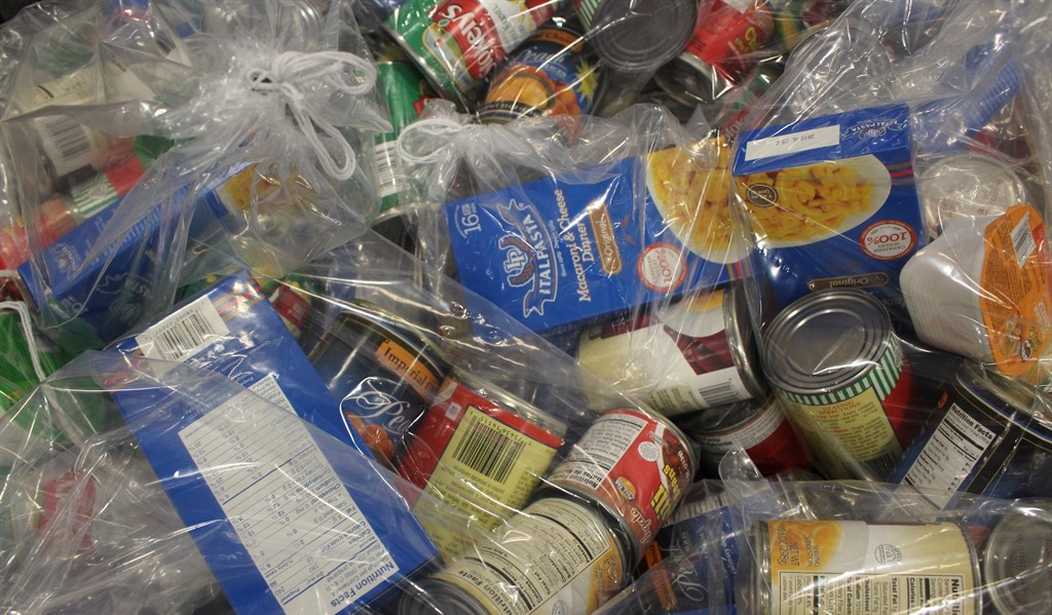It appeared to be the latest federal giveaway here in Arkansas -- but turned out to be more of a takeaway. File it under WFA for Waste, Fraud and Abuse, and there's no telling how long it might have gone on if a snap inspection hadn't revealed the extent of this scandal.
It all happened in Pine Bluff, where a local food-distribution program that was supposedly helping to feed the poor was wasting the food instead. It hurts just to read about all the staples that were left to spoil under the auspices of Neighbor to Neighbor, which might better have been called Taxpayer to Waster, since that's the way the deal went all too often.
The state Department of Health had to throw out 180 cases of cheese, 59 cases of cranberry juice, 25 cases of raisins, 70 cases of dried figs and two more of pinto beans. All of it was part of the stockpile of food that had been "stacked to the ceiling" of a warehouse. That was according to the report filed after an inspection conducted by Arkansas Foodbank.
All that food was found sitting on the floor or stacked against the walls of what was supposed to be a food-distribution center, not a center that just simply squirreled it all away to rot. So let's hear it for Kati South, who coordinates the food bank's work with that of the U.S. Department of Agriculture.
Happily, there are still public servants who keep a sharp eye out for waste, fraud and abuse in government programs. Once the whistle was blown on this scandal, any number of watchdogs leapt into overdue action alongside Ms. South -- like Jayne Ann Kita of Arkansas Foodbank, who quickly contacted the state's Department of Human Services about what was going on. She was told without further ado to get all this food out from under any control of the outfit called Neighbor to Neighbor and see that its ties to this government program were severed ASAP -- as they should have been.
Recommended
There has got to be a way to feed the hungry without risking despoliation or the litigation sure to follow when good people in government crack down on bad policies. Unfortunately that way has yet to be discovered, at least not in connection with what has happened in Pine Bluff -- a storied old river town that would seem to have challenges enough without adding this latest outrage to them.
So many fine-sounding and well-intentioned programs that go bad seem to start on the road to ruin by giving them wrong names. Why not call a spade a bloody shovel, and establish a federal Department of Waste, Fraud and Abuse so nobody is misled about its results? For the fight against corruption or just simple incompetence should begin by calling things by their right names. So innocent citizens and taxpayers aren't caught by surprise the next time one of these time bombs of a government program not only founders but goes under carrying a lot of We the People's money with it. Sure, that would be a shame, but at least it wouldn't be a surprise.
Neighbor to Neighbor took the well-meaning public for $240,841 in contributions and $9,555 in government grants just in 2015, doing things like holding fish fries to collect funds. According to its filings for tax-exempt status, Neighbor to Neighbor was founded in 1984 "to provide assistance to indigents." And this food pantry also "provided financial aid (to pay) for utilities, transportation, medical expenses, lodging, toys, school supplies, food and counsel to indigent or homeless people."
It's good to know Neighbor to Neighbor did accomplish some good to balance the bad, but scarcely enough. For not just food was wasted, but the trust of all those good souls who supported it in good faith. Some things just can't be listed on a balance sheet; they're intangible assets. What a pity those have gone to waste, too.

























Join the conversation as a VIP Member